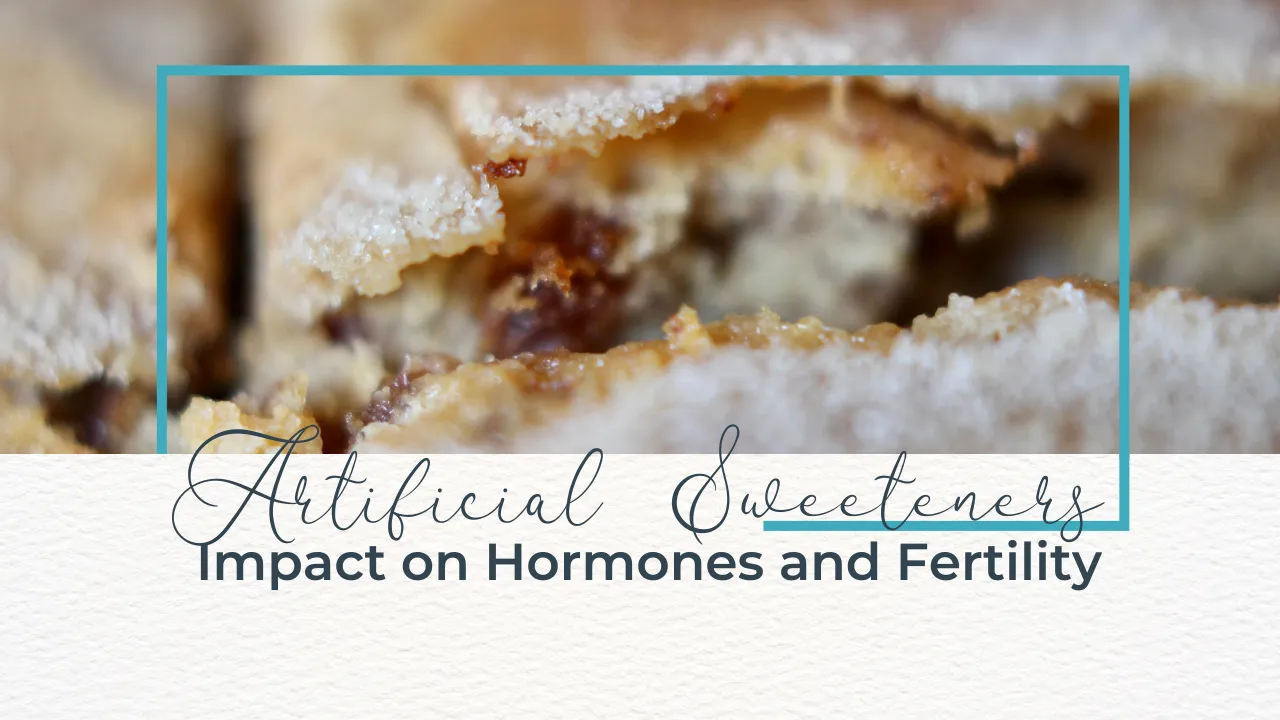The research presented at the American Society for Reproductive Medicine; it turns out a sweet tooth plays unseen havoc with fertility. ‘Artificial sweeteners are chemical based. If the cytoplasm of an egg can gets these chemicals, this will surely affect negatively the quality of the woman's egg, lowering the chance of getting pregnant. It could also lead to poor quality embryos and a higher risk of miscarriage,' says Dr. Geetha Venkat of the Harley Street Fertility Clinic.
Arguably the most vulnerable population to consider when it comes to secondhand sugar exposure is fetuses. Fetuses are completely reliant on nutrients supplied by their mothers for healthy growth and development. Exposure to harmful substances during these important phases can derail healthy development and potentially lead to irreversible future health problems.
PMID: 30501650
According to current evidence available, life-style interventions to prevent pre-pregnancy weight gain and obesity in women of fertile age are necessary to reduce the negative impact of obesity on mother and child health. Unhealthy dietary patterns, together with the increased consumption of processed foods rich in simple sugar and sweeteners are some of the responsible factors, among others, for the increase in obesity rates during the last years. Nevertheless, how its consumption can affect pregnancy outcomes and long-term children's health is still uncertain. PMID: 33266375
Replacing sugar with artificial sweeteners may be doing your body more harm than good. Recent studies show that these chemically modified sweeteners can damage the way your body naturally processes sugar, making you much more susceptible to overeating. Because of the increasing public health warnings, food companies are now using obscure names to hide these artificial sweeteners in their products.
Here are some of the common artificial sweeteners, and their hidden names
ACESULFAME POTASSIUM - ACK, Ace K, Equal Spoonful (also +aspartame), Sweet One, Sunett
ASPARTAME - APM, AminoSweet (but not in US), Aspartyl-phenylalanine-1-methyl ester, Canderel (not in US), Equal Classic, NatraTaste Blue, NutraSweet
ASPARTAME-ACESULFAME SALT - TwinSweet (Europe only)
CYCLAMATE - Not in US as per FDA, Calcium cyclamate, Cologran = cyclamate and saccharin; not in US, Sucaryl
ERYTHRITOL - Sugar alcohol, Zerose, ZSweet
GLYCEROL - Glycerin, Glycerine
HYDROGENATED STARCH HYDROLYSATE (HSH) - Sugar alcohol
ISOMALT - Sugar alcohol, ClearCut Isomalt, Decomalt, DiabetiSweet (also contains Acesulfame-K), Hydrogenated Isomaltulose, Isomaltitol
LACTITOL - Sugar alcohol
MALTITOL - Sugar alcohol, Maltitol Syrup, Maltitol Powder, Hydrogenated High Maltose Content Glucose Syrup, Hydrogenated Maltose, Lesys , MaltiSweet (hard to find online to buy), SweetPearl
MANNITOL - Sugar alcohol
NEOTAME
POLYDEXTROSE - Sugar alcohol, (Derived from glucose and sorbitol)
SACCHARIN - Acid saccharin, Equal Saccharin, Necta Sweet, Sodium Saccharin, Sweet N Low, Sweet Twin
SORBITOL - Sugar alcohol, D-glucitol, D-glucitol syrup
SUCRALOSE - 1',4,6'-Trichlorogalactosucrose, Trichlorosucrose, Equal Sucralose, NatraTaste Gold, Splenda
TAGATOSE - Natrulose
XYLITOL - Sugar alcohol, Smart Sweet, Xylipure, Xylosweet (this is different from the BIRCH XYLITOL which is a naturally occurring form of xylitol)
Which high-intensity sweeteners are permitted for use in food? Six high-intensity sweeteners are FDA-approved as food additives in the United States: saccharin, aspartame, acesulfame potassium (Ace-K), sucralose, neotame, and advantame.
- Saccharin is approved for use in food as a non-nutritive sweetener. It is 200 to 700 times sweeter than table sugar (sucrose), and it does not contain any calories.
- Aspartame is approved for use in food as a nutritive sweetener. It does contain calories, but because it is about 200 times sweeter than table sugar, consumers are likely to use much less of it.
- Acesulfame potassium is approved for use in food as a non-nutritive sweetener. It is about 200 times sweeter than sugar and is often combined with other sweeteners.
- Sucralose is approved for use in food as a non-nutritive sweetener. Sucralose is about 600 times sweeter than sugar.
- Neotame is approved for use in food as a non-nutritive sweetener. Approximately 7,000 to 13,000 times sweeter than table sugar.
- Advantame is approved for use in food as a non-nutritive sweetener. It is approximately 20,000 times sweeter than table sugar (sucrose).
source: https://www.fda.gov/food/food-additives-petitions/high-intensity-sweeteners
These artificial sweeteners considered safe in pregnancy — I am NOT suggesting them, however. Whole Leaf Stevia extracts would be the preferred choice pre & during pregnancy.
- Aspartame; Equal, NutraSweet, NatraTaste
- Acesulfame K; Sunett
- Sucralose; Splenda
- Stevia; Truvia, Purevia
Blood sugar control during pregnancy is important for your health and the health of your baby.
The following tips will help you control your blood sugar levels during pregnancy.
- Eating a heavy meal at once can cause your blood sugar to spike up. Eat smaller meals and have snacks. Nutritional needs during pregnancy will grow as your baby is depending on you to provide the right amount of nutrition.
- Fruits are nutritious, but because they have natural sugars, eat only one serving at a time. Berries are fruits that are low in sugar, loaded with antioxidants that support fertility, so these are preferable. Avocados are also safe to add to your diet during pregnancy as they contain high amounts of the key nutrients needed to support a healthy pregnancy, including folate and potassium.
- Try to consume green leafy vegetables for they have high nutrients that the baby needs. Dark leafy greens such as kale and spinach are packed with vitamins and minerals that expectant mothers and their babies need. They have vitamins A, C, K, and E, as well as calcium, iron, fiber, and folate. Folate is a B vitamin that protects against birth defects. Parsley is high in protein, Vitamin E, and riboflavin.
- Blood sugar can be difficult to control in the morning because that is when pregnancy hormones are very strong. These hormones can cause your blood sugar levels to rise even before you eat. Try consuming more protein vegetables.
- Drink lots of water to stay hydrated and avoid sugary drinks such as juices, soft drinks, etc. Water has many benefits. It aids digestion and helps form the amniotic fluid around the fetus. Water also helps nutrients circulate in the body and helps waste leave the body.
- Limit your sweets and desserts. We tend to indulge in sweets and desserts. And let's admit it, we all love having sweets most of the time, whether for our snacks or after a meal. But we must put in mind that sweets are a big no-no when we are pregnant. Or even during the time of preparing ourselves for pregnancy. To avoid future unlikely outcomes, strict your sweets and dessert consumption.
Limitations and restrictions on food intake during pregnancy don't mean that you're starving your baby. It means that you're on top of everything that makes your baby grow healthy from the moment you conceive until bringing the baby out into this world.

